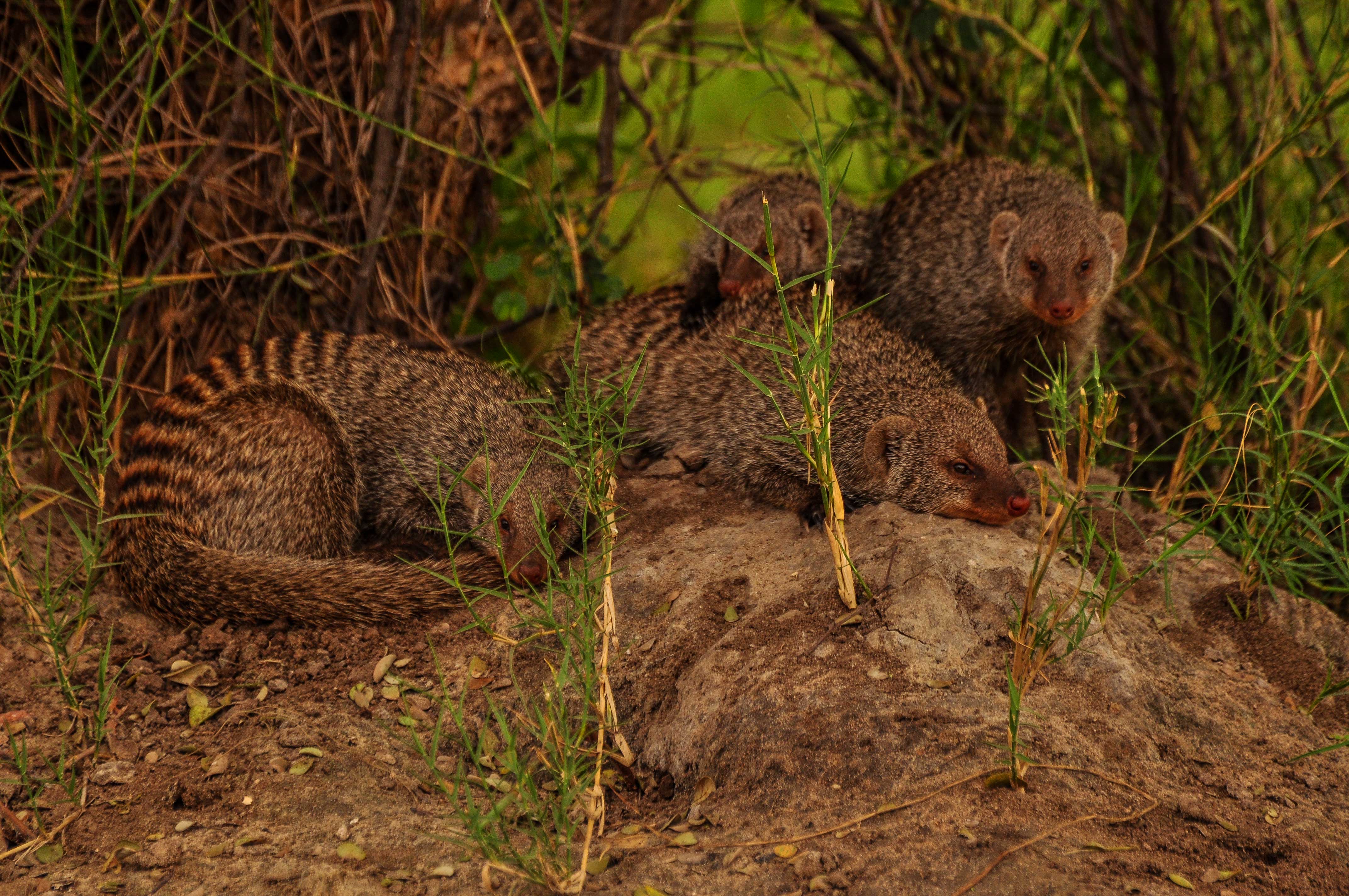
Incredible Wildlife Adaptions: Surviving Africa's Harshest Landscapes
Africa's diverse ecosystems host some of the most remarkable wildlife on the planet.
Africa's diverse ecosystems host some of the most remarkable wildlife on the planet. These creatures have evolved extraordinary adaptations and behaviors to survive the continent's often harsh environments.
In Botswana's Okavango Delta, a family of 30 banded mongoose faces daily dangers in their struggle to survive. Despite their small size, barely half a meter tall, they exhibit remarkable collective strength and intelligence. Living in a troop provides safety in numbers, allowing them to defend against predators and effectively forage for food. Each member of the troop plays a vital role in their social structure, from lookouts that alert the group to potential threats to skilled foragers who locate and retrieve food. The Delta is a rich and diverse ecosystem, but it is also fraught with peril. Predators such as birds of prey, snakes, and larger mammals constantly threaten the mongoose family. Yet, through their coordinated efforts and keen awareness, they manage to thrive. Their daily routines involve intricate communication and cooperation, showcasing a complex social system that rivals those of larger mammals.
In the scorching Namibian desert, a small community of desert-adapted elephants navigates one of the most inhospitable environments on Earth. These elephants, the largest land mammals in Africa, have developed unique adaptations to survive in such an arid landscape. Previous studies indicated that there were only 30 individuals remaining. Their survival is a testament to their resilience and intuition. These majestic creatures have learned to traverse vast distances in search of water, often going days without a drink. They rely on their exceptional memory and knowledge passed down through generations to locate hidden water sources. Their social bonds are equally crucial, as they depend on each other for protection and support. Recent studies have revealed that these elephants also possess a remarkable ability to extract moisture from the sparse vegetation, a skill essential for their survival in the desert.
Winter storms and turbulent waters trigger an ancient migration instinct in Southern Africa's ragged tooth sharks. These enigmatic creatures embark on a 3,000-kilometer journey to warmer waters where they breed and reproduce. The migration is fraught with challenges, as the sharks must navigate through changing ocean conditions and avoid numerous threats along the way. Despite their fearsome appearance, ragged tooth sharks are relatively slow-moving and rely on their keen senses to detect prey and avoid danger. During their migration, they hardly eat or rest, focusing all their energy on reaching their breeding grounds. This incredible journey highlights the resilience and determination of these marine predators, as many will return unsuccessful, and some will not return at all.
Each August, thousands of carmine bee-eaters depart their winter feeding grounds in Kenya and embark on an arduous 12,000-mile migration to their breeding colonies in Zambia's Luangwa Valley. These vibrant birds must bulk up on insects before their journey, taking advantage of the abundance of food stirred up by large game moving through the grasslands. The migration is perilous, with the tiny birds facing numerous threats, including predators and extreme weather conditions. Upon arrival in Zambia, they must establish and defend their nesting sites against hungry baboons and fish eagles. Despite these challenges, carmine bee-eaters are renowned for their acrobatic flight and vibrant plumage, making them a captivating sight in the African skies.
These stories of survival are not just fascinating; they also underscore the importance of conservation efforts to protect these remarkable creatures and their habitats. As human activities continue to impact the natural world, understanding and preserving the delicate balance of these ecosystems is more crucial than ever. By learning about and appreciating the extraordinary lives of Africa's wildlife, we can better support the efforts to ensure their continued survival for generations to come.